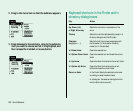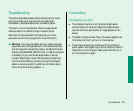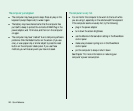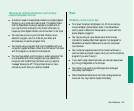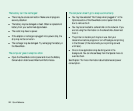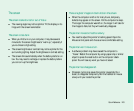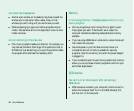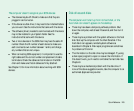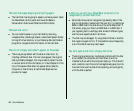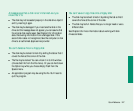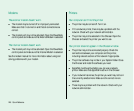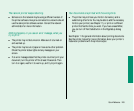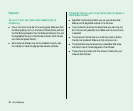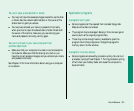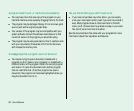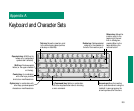
The hard disk keeps stopping and starting again.
m The hard disk may be going to sleep to conserve power. Open
the PowerBook control panel and move the Battery
Conservation slider toward Maximum Performance.
The hard disk is full.
m You can reclaim space on your hard disk by removing
unneeded files; installing a smaller, customized System Folder;
turning off virtual memory; or purchasing a disk optimization
program to reorganize the information on the hard disk.
The icon of a floppy disk doesn’t appear on the screen.
m There may be a problem with the disk or disk drive. Try
inserting a different disk. If its icon does appear, the original
disk is probably damaged. You may be able to repair the disk
or recover some of the information on it. See Chapter 8. If the
icon of the second disk does not appear either, take the
computer or disk drive to an authorized Apple service
provider for repair.
A disk you use with your PowerBook computer is not
recognized by another Macintosh.
m Some disk drives cannot recognize high-density disks. If the
disk is high-density (marked with the icon Ó), try inserting an
800K or 400K disk in the disk drive of the other Macintosh. If
that works, copy your files to an 800K disk or a 400K disk. If
you regularly plan to use floppy disk drives of different types,
use the lower-capacity disks in all drives.
m The disk may be damaged. Try using Disk First Aid or another
disk repair program to fix it. If this problem occurs frequently,
one of the disk drives may need repair.
You can’t eject a disk from a floppy disk drive.
m There may be a temporary mechanical problem with the disk
drive. Restart the computer and hold down one of the
trackball buttons while the computer starts up. If that doesn’t
work, carefully insert the end of a straightened paper clip into
the small hole near the disk drive’s opening, and push gently
until the disk is ejected.
246 Quick Reference



